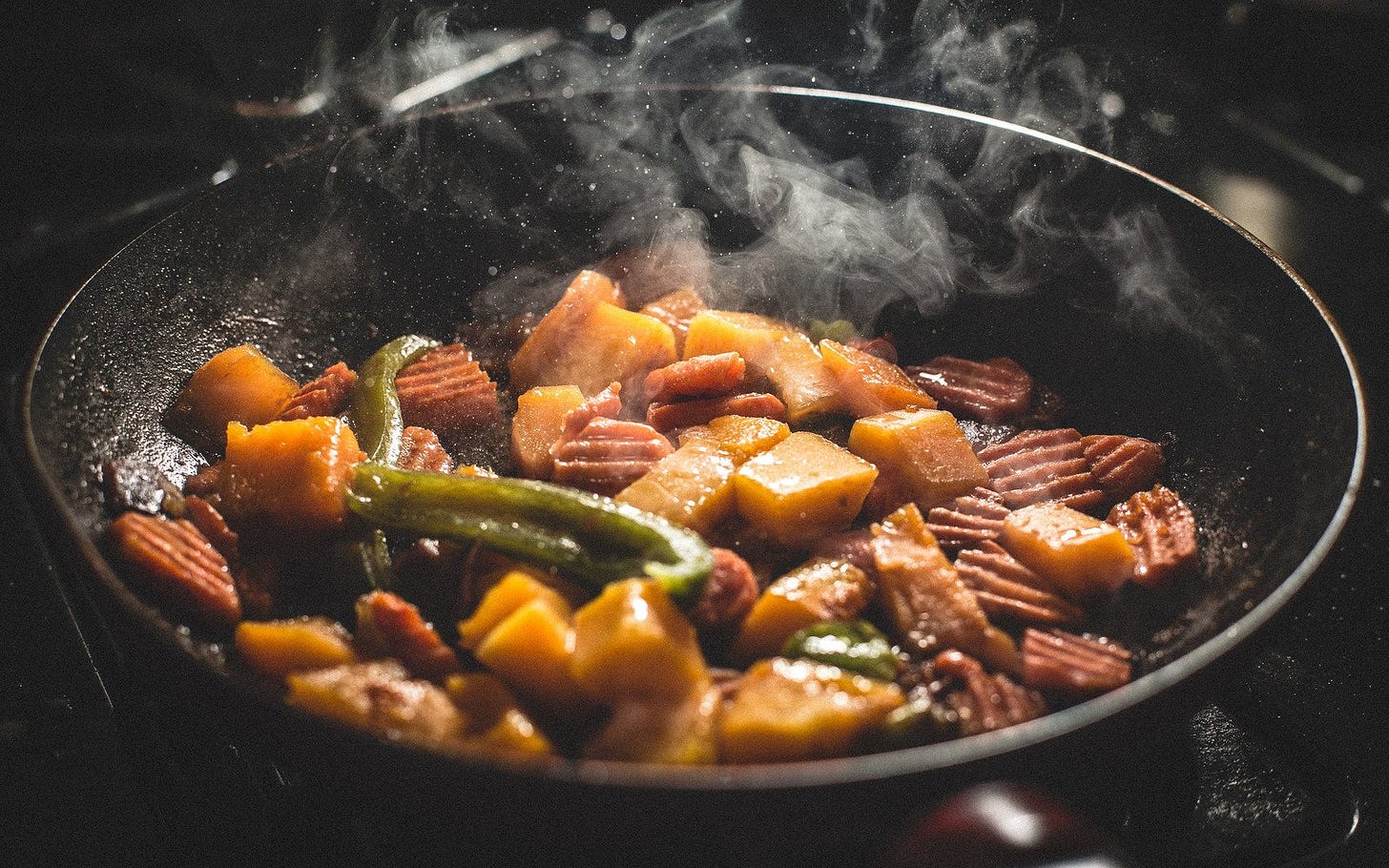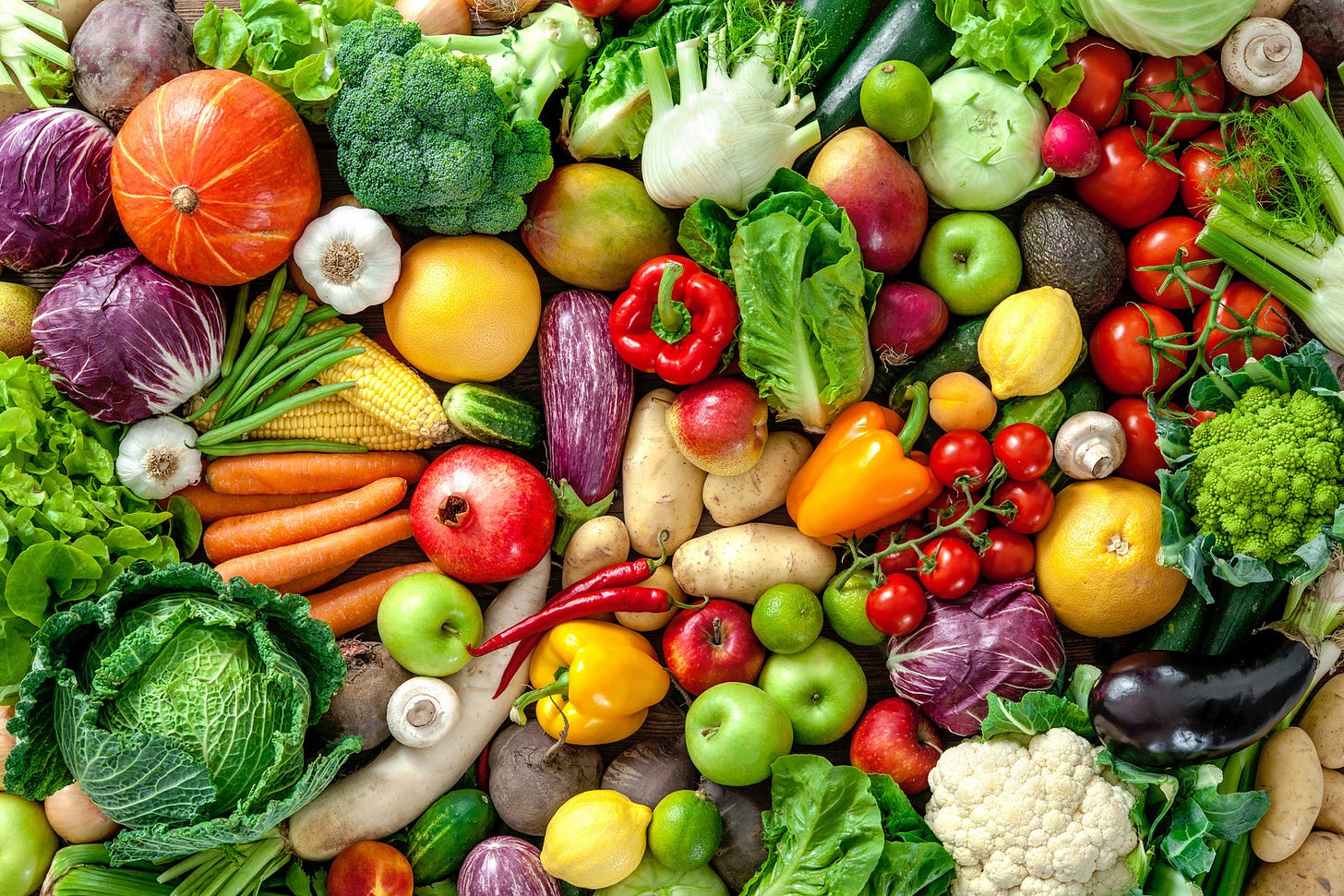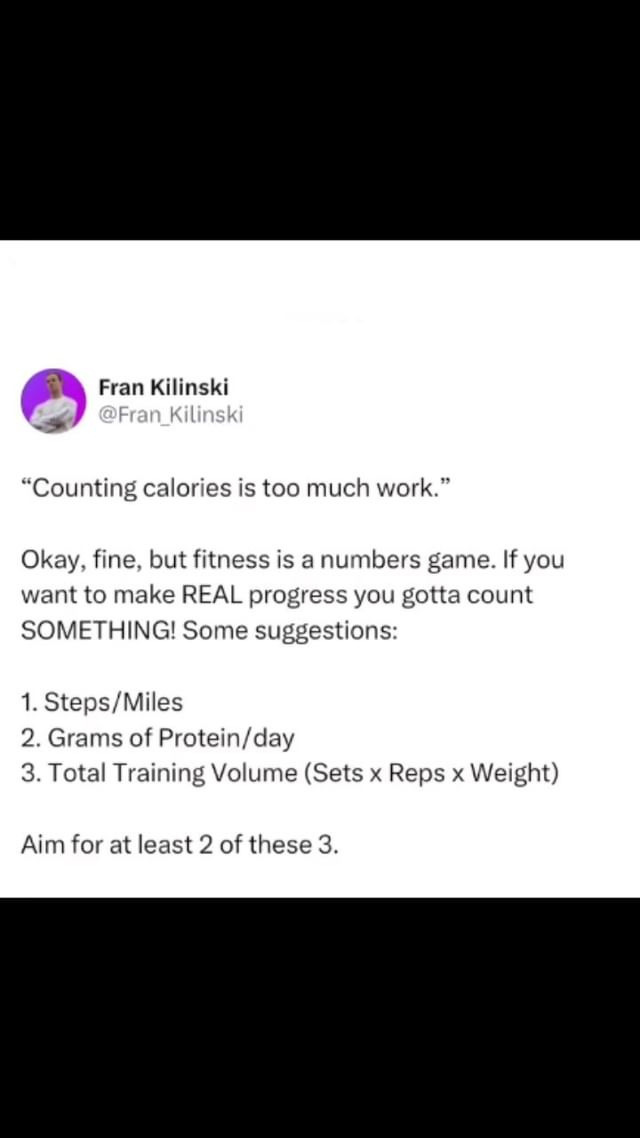Your Diet and Stress
What your diet consists of can be fueling your stress levels.
Good Morning!
And welcome to any new subscribers. Hopefully, this doesn’t end up in your spam inbox.
Our diet is something that, for better or for worse, is constantly changing. The optimist in me says that for most people, that’s a good thing.
I can’t imagine a world where I wake up eating the same 3-4 meals and snacks daily. For some, it works and takes the thinking out of dieting/calorie tracking. I don’t often advise clients to eat this way but to each their own.
It’s why I give all the more praise to bodybuilders who put themselves through it every competition cycle.
But what if our eating is too sporadic? Is it possible that lacking consistency in our foods could be harmful? So far as science understands it, not quite.
Our food choices are primarily a part of the environment we’re in socioeconomically. The resources available to us — the food, the money we have to purchase it, and the time or appetite we have to eat it — will be significant determinants of how we eat.
It’s important to remember these factors next time you beat yourself up for eating fast food or overeating around the holidays.
Thanksgiving, for example, is one I hear a lot about as a trainer.
“I shouldn’t have eaten as much as I did. It was too much!” And I always think to myself, “Why?”
Chances are the food was readily available for you (in surplus, nonetheless), you had a 3 or 4-day break from work, and maybe you were one of the lucky ones who didn’t have to help prepare dinner.
Who wouldn’t indulge a bit under those circumstances?
Stress Comes From Our Relationship with Food
The fundamental diet component that gets lost in indulgent holidays like Thanksgiving and Christmas is our relationship with our food.
If we add a couple pounds around the end of the calendar year (and most of us do), we start to think we’ve let ourselves down in some way.
When coupled with seasonal depression, this newly negative impression we have of our bodies snowballs into a cycle of not-so-great food choices.
While these instances are not as medically problematic as binge-eating disorder, they can still throw us into a see-sawing battle of how good or bad we feel about ourselves aesthetically.
Moreover, in the age of social media where everyone else’s lives are thrown into our faces, some of us put increased pressure on ourselves to look good for our next social post to keep the influx of likes coming in.
We can’t let the holidays, social media, or any other instance of binge eating make us depressed to the point of food apathy.
There are too many societal and biological factors surrounding your diet and your choices to beat yourself up about what and when you eat. As well as you may think you may know your body, there is no concrete strategic way to eat perfectly.
Apparently, even the some of the world’s foremost nutritionists seem to admit this in 2016’s Encyclopedia of Food And Health:
“…The level of complexity is enormous and currently no single mathematical model can integrate all the information available and generate all the possible knowledge [on nutrition]…Needless to say, we are still far from having a complete model integrating all the components and interactions relevant to human nutrition and health that must also take into account individual differences, that is, taking into account gene expression–nutrient interactions. But, eventually, we will get there.
What diets prevent stress?
Unfortunately there isn’t one diet that helps prevent stress. The diet you want to aspire for is one that isn’t difficult for you to maintain and still keeps you healthy.
That means not obsessing over eating all the healthiest foods all the time, but maybe following something like the 80/20 rule. This is a good starting point that might need to be adjusted later on.
For some, fasting is a great way to eliminate the tendency to eat when you’re bored or feeling depressed. I’d encourage you to read up on how to effectively fast, because when done right, it’s a great exercise in restraint and overall food control, and can even put your brain into a parasympathetic (relaxed) state when practiced regularly.
Whatever you do, don’t rely entirely on social media for food advice beyond a recipe here and there. I’m aware of TikTok’s rising acclaim as a Gen-Z search engine, but I would highly advise against using it for all nutritional needs (and so would your doctor).
Studies have shown, for example, that regardless of content matter, constantly browsing of apps like Instagram for nutrition tips can actually increase the likelihood of developing Orthorexia Nervosa, or an unhealthy obsession with healthy food.
But Wait…
While dieting should be (mostly) stress-free, there is a component I’ve recently changed my tune on.
I used to think it was okay not to track food in your diet and still be able to make progress. But now, I think tracking dietary measurements — even if it’s not every single calorie — is paramount to real fitness success.
Fitness — whether it’s weight loss, weight gain, or general strength — is a numbers game at the end of the day. You need to have some sense of what’s going in and out, even if it isn’t necessarily the calories.






